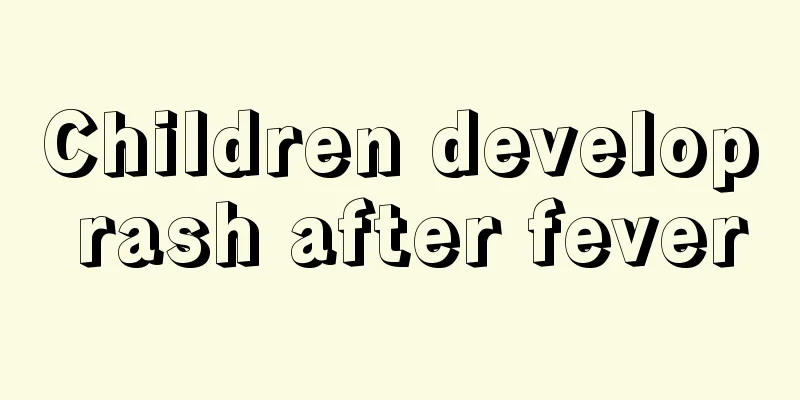Frequent nosebleeds in children

|
Children's bodies are often prone to illness because children have their own problems at every different age. There are some problems that we will inevitably experience in the process of growing up. Therefore, parents should not be too nervous, but if their child has a nosebleed, they must find out the cause. Because frequent nosebleeds indicate that the child is likely to have a serious illness, so what is the reason for frequent nosebleeds in children? Main causes of nosebleeds in children 1. Bad climatic conditions, such as dry air, hot weather, low air pressure, cold weather, and high room temperature can cause nosebleeds. 2. Nosebleeds are more likely to occur when the nasal mucosa is dry, the capillaries are dilated, there is nasal inflammation or irritation, such as various rhinitis, sinusitis, nasal tuberculosis, nasal syphilis, nasal trauma, deviated nasal septum, nasal foreign bodies or nasal tumors. 3. External injury is a major cause of nosebleeds in children. Children are active and naughty, and may have nosebleeds if they accidentally bump into hard objects. Also, children should be educated not to pick their noses casually, as picking their noses may damage the nasal mucosa, leading to nosebleeds. 4. Some children have the bad habit of picking their noses with their hands. When the nasal mucosa is dry, it is easy to pick their noses and cause bleeding. 5. Nasal mucosal erosion, nasal septum deviation, etc. This is the most common cause. It is recommended to go to the ENT department for examination and diagnosis. 6. Bad habits such as being picky about food, eating a partial diet, and not eating vegetables can also cause nosebleeds due to vitamin deficiency. How to deal with a child's nosebleed? Nosebleed is an emergency and should be stopped promptly once it occurs. A simple method is to plug the bleeding nostril with a sterilized cotton ball or pinch both nostrils with your thumb and index finger; you can also press the nostril on the affected side with your index finger for 5-10 minutes to stop the bleeding. At this time, you should try to keep your child quiet and avoid crying. It is best to let the child sit with his head slightly tilted forward, and try to spit out the blood swallowed from the nasopharynx into the mouth. This will not only let you know the amount of bleeding but also avoid swallowing the nosebleed into the stomach, which will irritate the stomach and cause abdominal pain and vomiting. If the amount of bleeding is large and there are precursor symptoms of hemorrhagic shock such as pale complexion, sweating, rapid heart rate, and poor spirits, the patient should be placed in a semi-recumbent position and sent to the hospital for treatment as soon as possible. |
<<: Children's nosebleeds in winter
>>: Children's nosebleed in autumn
Recommend
What to do if your child has a fever
What parents fear most is not their children bein...
What are the symptoms of food fever in babies?
As we all know, the baby's digestive function...
9 principles for using air conditioning on children in hot weather
As the weather gets hotter in summer, whether or ...
How to solve itchy skin in children?
As spring slowly fades away, the weather seems to...
What are the dangers of juvenile rheumatoid arthritis?
I believe that parents are most concerned about t...
What's wrong with the black spots on the white of my child's eye?
It is said that the eyes are the windows to the s...
What should I do if my newborn baby has blisters on his hands?
Some mothers find that blisters sometimes appear ...
What are some good ways to do physical exercise for kids?
In today's society, there are more and more o...
The reason why children's eyes are red and swollen with eye mucus
The health of children is a matter of great conce...
What is the monthly height growth standard for babies?
Many people in modern life attach great importanc...
What are the symptoms of teething in babies?
Some children may suddenly develop a high fever o...
Diet therapy for children with tracheitis
Treating children's health is something that ...
Girls' development age details
introduce Modern living conditions are much bette...
What to do if your child has a fever and his hands and feet are hot
If children have a fever, it will naturally have ...
What to do if your child has wind pimples
Children's skin is particularly delicate and ...









